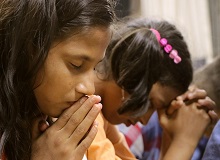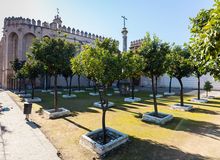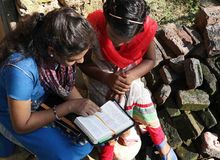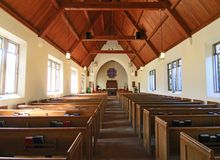


Perhaps you feel that, of all God’s people in this continent, you are the most like Jonah at this time. You should know better, but you’ve drifted too far. God could simply give up on us, but he doesn’t.

A Pew Research analysis combines data of a dozen of trusted sources. It concludes that “most of the 56 countries with high or very high levels of government restrictions on religion are in the Asia-Pacific region or the Middle East-North Africa region”.

The Andalusian town of Santiponce where the first translator to the Bible into Spanish worked, honoured the persecuted Reformer: “To tolerance and freedom”.

The manual emphasizes the importance of maintaining a healthy lifestyle and encourages Christians to trust God and “be witnesses of Jesus in these times”.

Seek to speak from God’s heart to theirs: sensitively, passionately, directly, and clearly.

A bit of ‘hygge’ might come in handy for us all… especially for parents of children with special or additional needs.

On the 500th anniversary of his birth, Andalusian evangelicals and authorities “remember, not only Casiodoro de Reina, but all those who contributed to have the Bible in Spanish”.

Evangelical organisations call for action to preserve biodiversity in the statement ‘Faith Call to Action for the UN Summit on Biodiversity’.

The Evangelical Fellowship of India denounces that Christians “are warned to leave their faith or face consequences” and urges the state “to ensure that the perpetrators are brought to justice”.

The Spanish Bible Society launches a new version of the most widely read Bible in Spanish, “with an agile text but keeping the legacy of the original Bear Bible”.

Reflections on the problem of evil and the might of God.

A tiny, rare phosphine molecule does not appear to be sufficiently solid evidence to support such an important hypothesis as the existence of life on Venus.

Covid-19 might just be an extraordinary interruption that we can attend to, manifesting, as Jesus did, that the rule of God’s love has come on earth as it is heaven.

It was time to go back. Nervous days led up to the big day, a sleepless night the night before, and that was just me!

The State of Theology survey released by LifeWay Research and Ligonier Ministries “reveals that many evangelicals express erroneous views that mirror the broader U.S. population”.

Would this already-ailing institution ever recover from lockdown?

“Evangelicals are sadly drifting away from God's absolute standard in Scripture”, says the chief academic officer of Ligonier Ministries, one of the authors of the survey.

A quarter of the Bibles distributed were in a digital format. Most downloaded scriptures were in Spanish and Portuguese.

We are just like candles, shining a light on a part of the world that the world often chooses to ignore.

World Vision and the Barna Group released a study on the values of Millennials and Generation Z and their relationship with faith issues.

Evangelical ministries and churches help providing for basic necessities, cleaning churches and rebuilding houses.“Pray that the church in Lebanon will be light amid the destruction”.

Speaking to a crowd of people is something that is unnatural for everyone, and fearful for many.

“Europe is the world’s most peaceful region”, Global Peace Index says. “As Christians, our contribution to peace is to be a reflection of Jesus”, the leader of Anabaptists and Mennonites in Spain, says.

However safe and self-sufficient we felt, a virus has reminded us of the fragility of life and has brought us face to face with death.

A Pew Research Center survey shows that “people in emerging economies tend to be more religious and to say that belief in God is necessary to be moral”.

Las opiniones vertidas por nuestros colaboradores se realizan a nivel personal, pudiendo coincidir o no con la postura de la dirección de Protestante Digital.